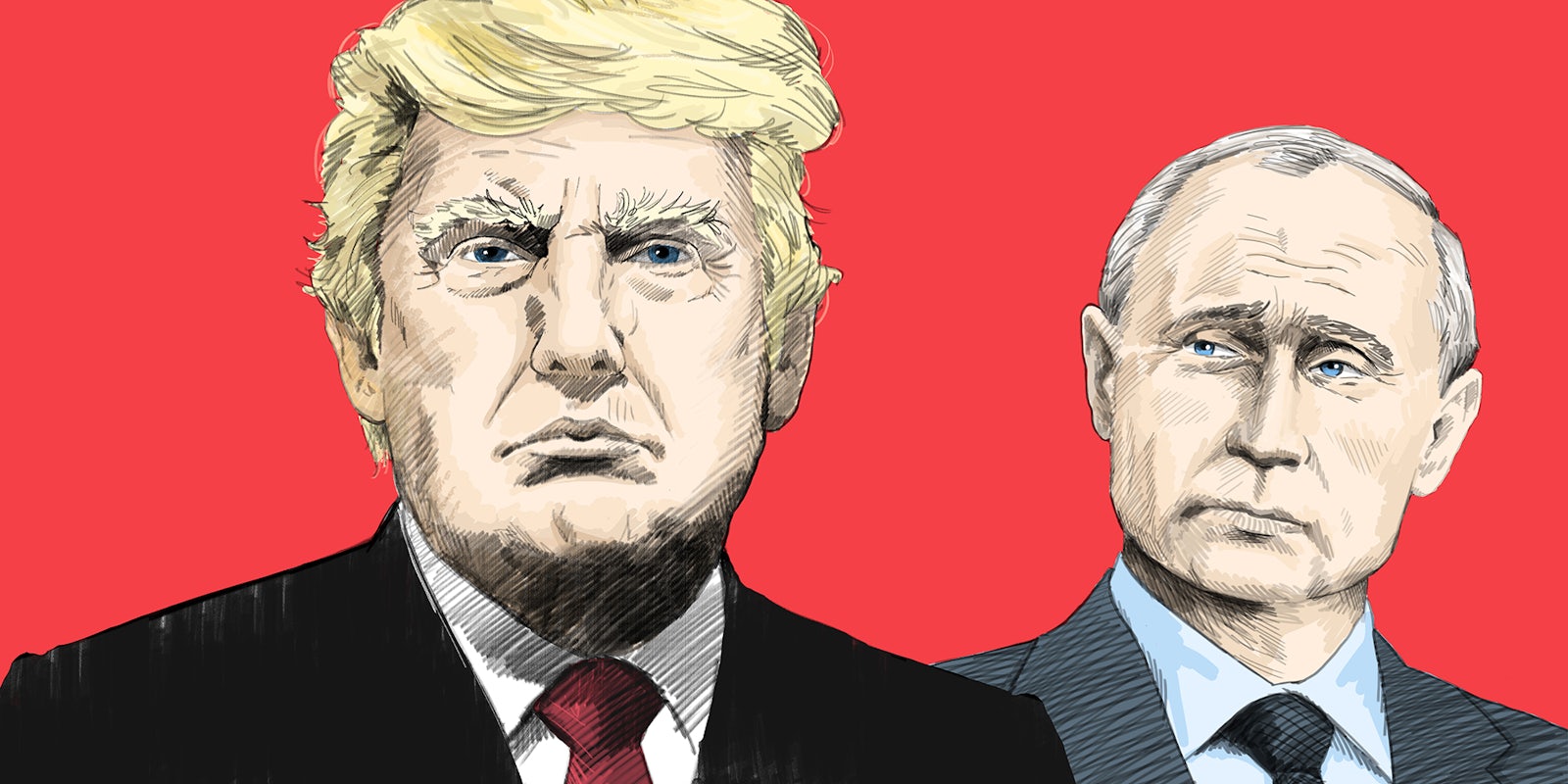Experts are expressing skepticism over a series of documents released on Thursday that purport to detail Russian government plans to back Donald Trump during the 2016 presidential election.
The documents, excerpts of which were released by the Guardian, are alleged to show Russian President Vladimir Putin authorizing a multi-agency operation aimed at backing a “mentally unstable” Trump.
“They agreed a Trump White House would help secure Moscow’s strategic objectives, among them ‘social turmoil’ in the US and a weakening of the American president’s negotiating position,” the Guardian reported. “Russia’s three spy agencies were ordered to find practical ways to support Trump, in a decree appearing to bear Putin’s signature.”
But experts are raising concerns about the report’s validity. Thomas Rid, Professor of Strategic Studies at Johns Hopkins University School of Advanced International Studies (SAIS), urged readers to remain cautious given the many questions left unanswered.
“This Guardian story is likely to make big waves. I would remain somewhat cautious for now, however,” Rid tweeted. “For a ‘leak’ of this magnitude, we need at least some details on the chain of custody. Also note the Guardian’s own hedging (‘papers appear to show’).”
Rid goes on to further note that the Guardian, despite Russia’s long history of releasing fabricated documents to the press, makes no mention of whether the outlet had looked into the possibility that its source materials were forged.
Chris Krebs, the former director of the Department of Homeland Security’s Cybersecurity and Infrastructure Security Agency (CISA), also agreed with Rid’s cautiousness surrounding the report.
“This is far too convenient & reeks of #disinfo operation. It could all be individually or collectively true and at the same time planted & fake. So in the meantime, I’m taking this [cautious] approach,” Krebs said, suggesting that the so-called leak could be intended to bait readers.
Matt Tait, a former information security specialist for the UK’s GCHQ intelligence agency, also broke down in a detailed thread numerous reasons why the documents are suspect.
While the document’s origins remain unknown, many have argued that the damage has already been done. Regardless of whether the documents turn out to be true or false, readers are unlikely to alter their beliefs given the highly politicized nature of the Guardian’s report.
“Even if was validated, I’m not sure it would have a great impact,” foreign and defense policy writer Steve Metz said. “Trump opponents already assume it’s true and Trump supporters would continue to deny it even in the face of evidence. There are few people who can be swayed one way or the other by new evidence.”


